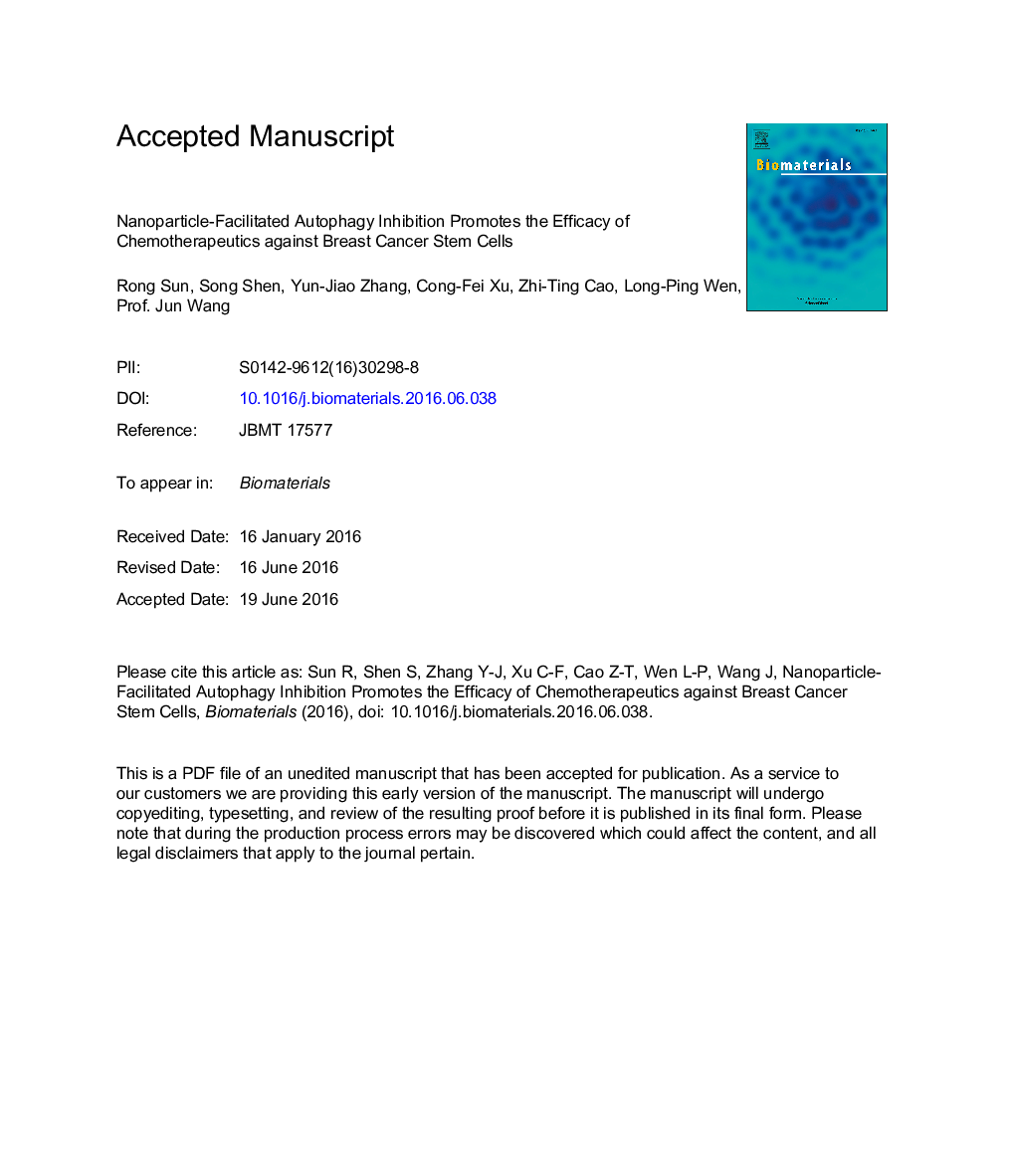| Article ID | Journal | Published Year | Pages | File Type |
|---|---|---|---|---|
| 6484875 | Biomaterials | 2016 | 36 Pages |
Abstract
Cancer stem cells (CSCs) have garnered increasing attention over the past decade, as they are believed to play a crucial role in tumor initiation, progression and metastasis, relapse and drug resistance. Therapeutic strategies which simultaneously exterminate both bulk tumor cells and the rare CSC subpopulation may produce striking response and result in long-term tumor remission. Accumulating evidence provides insight into the function of autophagy in maintenance, plasticity and survival of CSCs. The role of autophagy in the susceptibility of breast CSCs to chemotherapeutics was investigated in the present work, reduced 'stemness' and increased susceptibility to chemotherapy drugs (doxorubicin, DOX and docetaxel, DTXL) were observed after chloroquine (CQ)-mediated autophagy inhibition in sorted ALDHhi cells of breast cancer cell line MDA-MB-231. We further proved that nanoparticle-mediated autophagy inhibition promoted the efficacy of chemotherapeutics against ALDHhi MDA-MB-231 cells in vitro. Administration of drug delivery systems significantly prolonged the circulation half-life and augmented enrichment of two different drugs in tumor tissues and ALDHhi cells. More importantly, compared with single treatment, the combined delivery systems NPCQ/NPDOX and NPCQ/DOX (NPCQ/NPDTXL and NPCQ/DTXL) showed most effective and persistent tumor growth inhibitory effect by eliminating bulk tumor cells as well as CSCs (p < 0.01) in an MDA-MB-231 orthotopic tumor murine model. Therefore, our research provides new insights into the nanoparticle-facilitated combination of autophagy inhibition and chemotherapy for effective therapy of breast cancer.
Keywords
Related Topics
Physical Sciences and Engineering
Chemical Engineering
Bioengineering
Authors
Rong Sun, Song Shen, Yun-Jiao Zhang, Cong-Fei Xu, Zhi-Ting Cao, Long-Ping Wen, Jun Wang,
